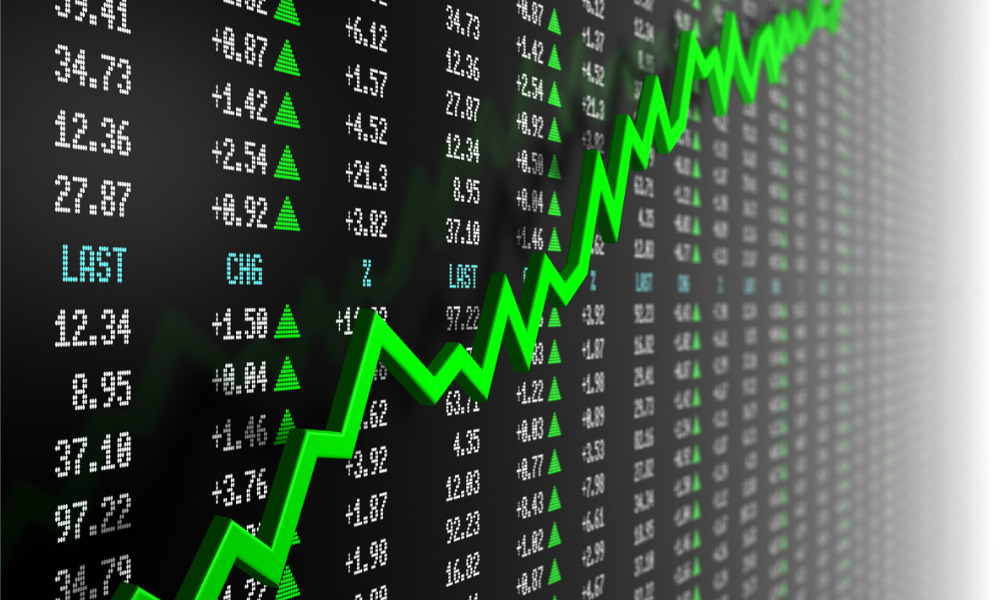

European shares rallied after dovish comments by Federal Reserve officials and the prospect of more economic stimulus by China brought some risk appetite back to markets as investors continue to evaluate the potential impact of the Israel-Hamas conflict.
Treasuries jumped, catching up with Monday’s global government bond rally, when cash trading in the US was closed. The yield on the policy-sensitive two-year Treasury dropped by the most since the end of August, while the benchmark 10-year had its best day since March. U.S. equity futures rose and the dollar extended its losing streak to a fifth day.
The Stoxx Europe 600 index climbed more than 1%, heading for its best day in a month, with all industry sectors in the green. Miners led the advance after Bloomberg reported that China is preparing to unleash a new round of stimulus measures which may support metal p[rices. Anglo American advanced more than 5%, while Glencore and Rio Tinto added more than 3% each.
At the end of last week, traders had boosted bets on another Fed hike this after U.S. employment unexpectedly surged in September. That narrative switched on Monday, however, as central bank officials tamped down the speculation. Fed Vice Chair Philip Jefferson said officials could “proceed carefully” following the recent rise in Treasury yields, and Federal Reserve Bank of Dallas President Lorie Logan said the surge in long-term rates may mean less need for further tightening. Another slate of Fed speakers today may add to the picture.
“The latest comments from Fed speakers have had a clear risk-on influence on the market,” said Benjamin Melman, global chief investment officer at Edmond de Rothschild Asset Management. “There’s been a clear change of tone.”
China is considering raising its budget deficit for 2023 to help the economy meet the government’s annual growth target, Bloomberg reported. Policymakers are weighing the issuance of at least 1 trillion yuan ($137 billion) of additional sovereign debt for spending on infrastructure such as water conservancy projects.
An escalation of tensions in the Middle East, however, remains a risk for markets, with Israel mobilizing its military forces near Gaza, and questions being asked about Iran’s role in the bloody incursion.
The latest conflict comes at a time of ongoing geopolitical concerns, with markets also facing a period of moderating global economic growth, according to Solita Marcelli, chief investment officer for the Americas at UBS Global Wealth Management.
“Against this backdrop, we continue to prefer fixed income to equities,” Marcelli said. “We see a better risk-reward profile for fixed income, and we recommend investors consider buying high-quality bonds in the five- to 10-year maturity range. We foresee further cooling in inflation and slower global growth.”
Another risk for US stocks may come from fiscal policy constraints at a time when the Fed is still fighting high inflation, according to Morgan Stanley’s Michael Wilson. The strategist — among the most prominent bearish voices on Wall Street — said while the US government narrowly avoided a shutdown last week, “the lack of a resilient long-term structure that supports fiscal discipline” could have an impact on financial markets.
Key events this week:
Some of the main moves in markets:
Stocks
Currencies
Cryptocurrencies
Bonds
Commodities
This story was produced with the assistance of Bloomberg Automation.

Integrated Partners is adding a mother-son tandem to its network in Missouri as Kestra onboards a father-son advisor duo from UBS.

Futures indicate stocks will build on Tuesday's rally.

Cost of living still tops concerns about negative impacts on personal finances

Financial advisors remain vital allies even as DIY investing grows

A trade deal would mean significant cut in tariffs but 'it wont be zero'.
RIAs face rising regulatory pressure in 2025. Forward-looking firms are responding with embedded technology, not more paperwork.
As inheritances are set to reshape client portfolios and next-gen heirs demand digital-first experiences, firms are retooling their wealth tech stacks and succession models in real time.
